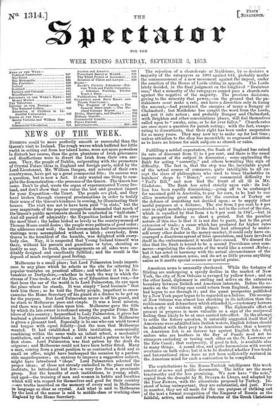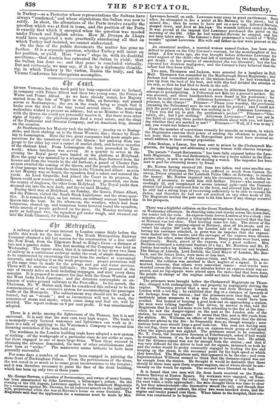The contributions to the Russo-Turkish intelligence this week consist of
news and public documents. The latter are the more trustworthy and the less promising. We now have "the note," copied from the draught by M. Drouyn de Lhuys, and adopted by the Four Powers, with the alterations proposed by Turkey. In- stead of being unimportant, they are substantial, and just Five in number, they are all made for the one purpose of striking out of the text a formal recognition of the Emperor of Russia as the faithful, active, and successful Protector of the Greek Christians in Turkey—as a Protector whose representations the Sultans have always "confirmed," and whose stipulations the Sultan was now to ratify. In short, the alterations of the Porte involve exactly the question which was at first in issue, and the position of the Porte is exactly that which it occupied when the question was mooted wider French and English adviee. How M. Drouyn de Lhuys could have suggested a note practically abandoning all that on which Turkey had insisted, we cannot understand.
On the face of the public documents the matter has gone no further. It is a separate question, whether Turkey will insist on her position, or yield. Here " news " steps in, with its doubtful assertions,—that Austria has entreated the Sultan to yield; that the Sultan has done so ; and that peace is concluded virtually. But not virtuously, we may say, if it is by a diplomatic thimble- rig, in which Turkey is the victim, Russia the bully, and the Vienna Conference his obsequious accomplice.



























